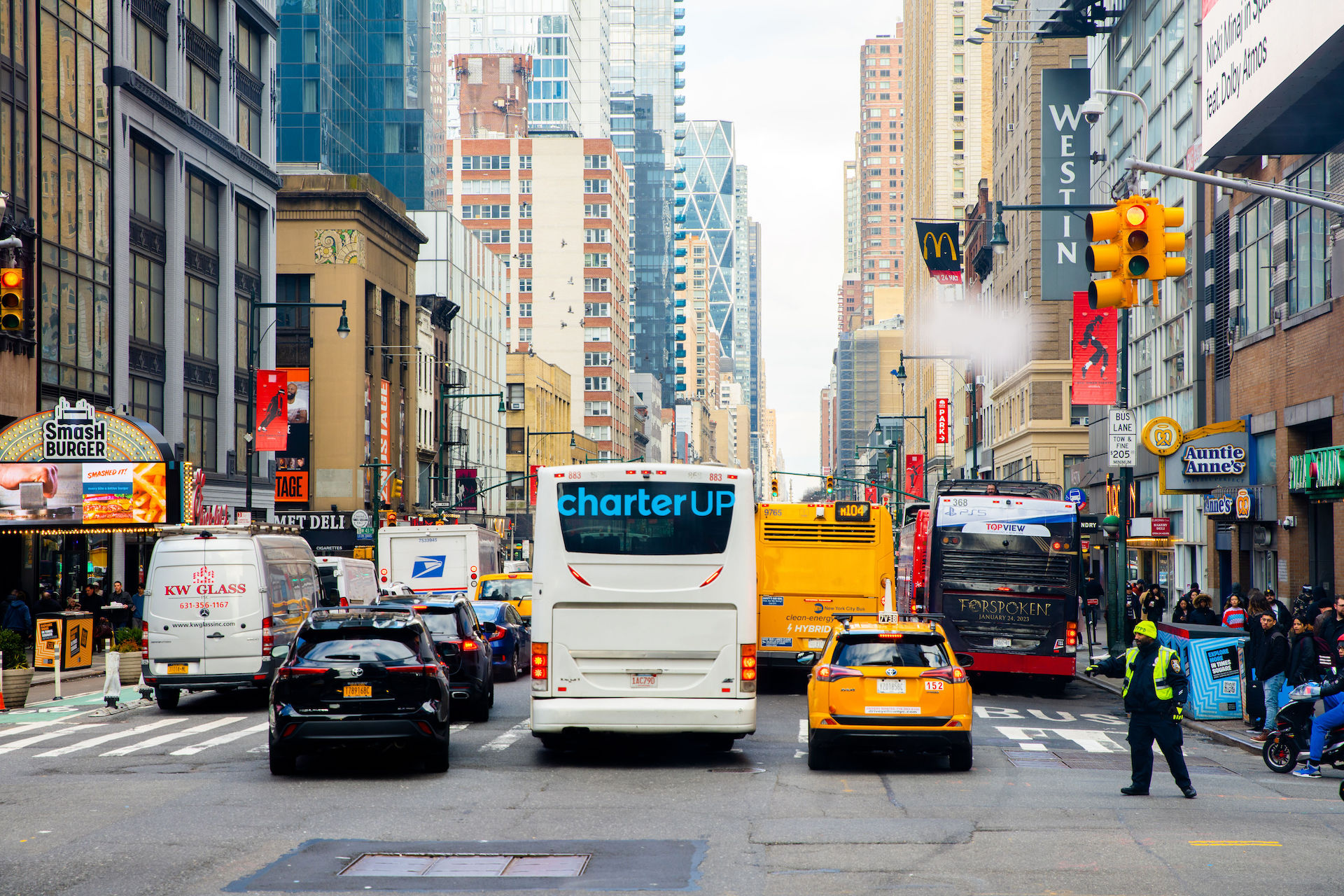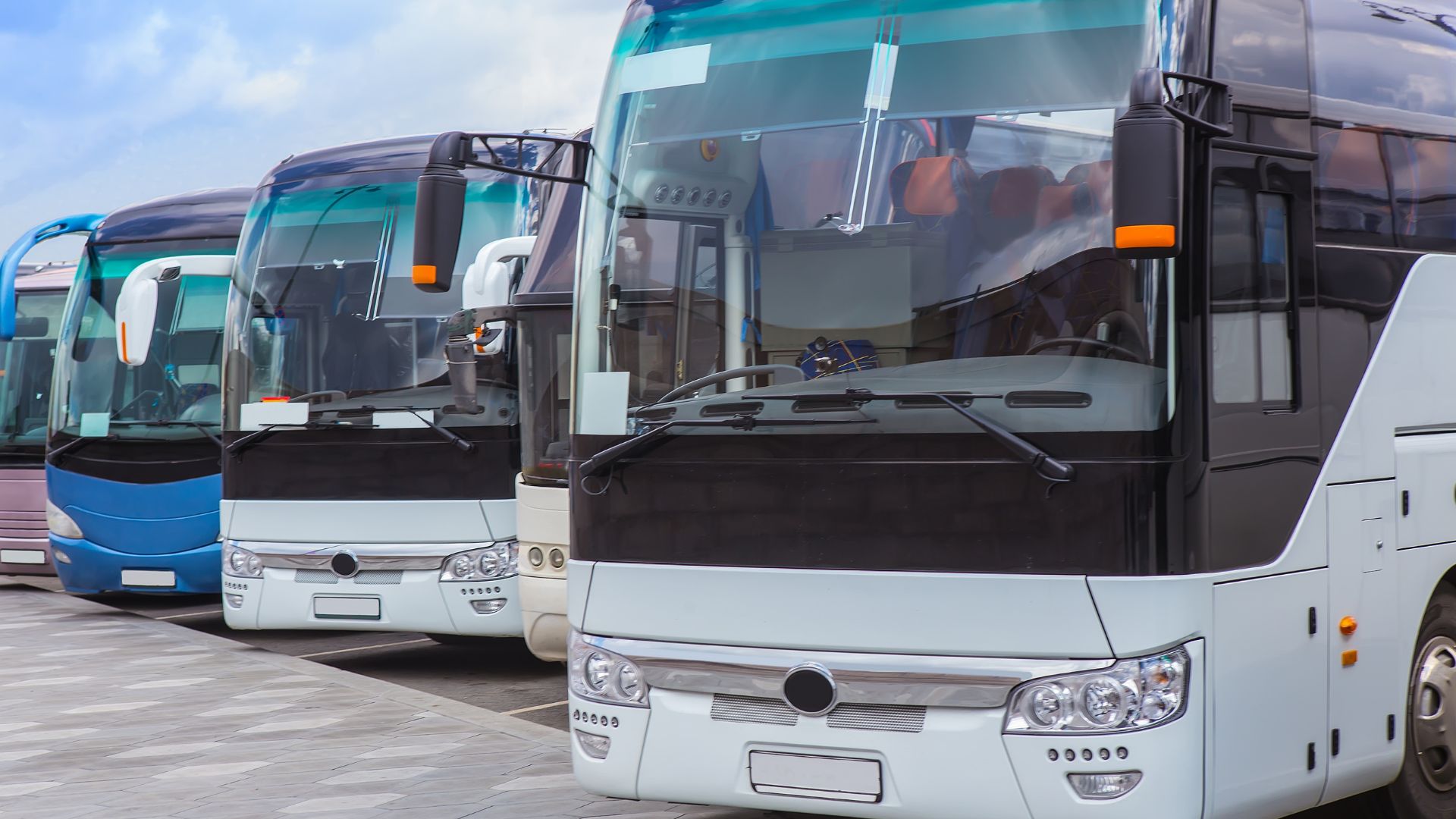As cities across the United States grapple with the evolving challenges of urban mobility and congestion, New York City’s decision to include charter buses in its congestion toll plan has ignited a significant debate.
While city-owned vehicles and scheduled bus services will be exempt from the toll, charter buses will be charged between $24 and $36 when they enter the designated congestion zone. This move, surprising many, fails to acknowledge the vital role that charter buses play in mitigating city traffic and pollution.
In 2022, the typical U.S. driver lost 51 hours to congestion, marking a stark increase from the previous year and highlighting the need for efficient, collective transportation solutions like charter buses. These vehicles are instrumental in significantly reducing the number of cars on the road, offering a solution that not only alleviates traffic congestion but also contributes to cleaner air.
CharterUP stands at the intersection of this discussion, with a robust network of operators in Greater New York City, emphasizing the importance of charter buses in urban transport strategies. Last year, CharterUP moved nearly 600,000 passengers over 1 million miles in the Greater New York City area. The 11,714 NYC trips by CharterUP, with an average occupancy of 50 passengers per trip, eliminated nearly 600,000 single-passenger vehicles from the city, significantly reducing congestion and emissions.
CharterUP eliminated nearly 600,000 single-passenger vehicles from New York City in 2023, significantly reducing congestion and emissions.
This considerable achievement underscores the potential of charter bus services to serve as an effective solution for mass transportation, especially as cities like Chicago and Miami report increases in congestion levels post-pandemic, according to INRIX’s 2022 Global Traffic Scorecard.
However, New York City’s plan to impose tolls on these buses may inadvertently penalize a mode of transportation that significantly contributes to urban mobility solutions. The additional costs could impact operators and, by extension, passengers, potentially discouraging the use of this environmentally friendly transport option. This decision stands in stark contrast to the benefits realized by charter buses, which have been proven to play a critical role in reducing urban congestion and promoting sustainable modes of transportation.
While New York City’s congestion toll plan has drawn the spotlight, the conversation extends well beyond its borders. Across the United States, charter buses represent a critical component in the broader strategy to mitigate traffic jams, lower urban pollution levels and promote more sustainable transportation modes. Efficiently moving large groups of people, charter buses decrease reliance on individual car trips, significantly easing the strain on city streets and contributing to cleaner air.
The national conversation spurred by the challenge faced by charter buses in New York City is a crucial reminder of the need for urban planning and congestion management strategies that recognize and support the contributions of group transportation solutions. As cities like Chicago experience higher congestion levels than pre-pandemic times, the role of charter buses becomes even more critical in creating livable, accessible and environmentally friendly urban spaces.
CharterUP and its extensive network exemplify the positive impact charter buses can have on urban transportation ecosystems. Our commitment to facilitating efficient, eco-friendly travel solutions aligns with the needs of modern cities facing the dual challenges of congestion and environmental sustainability. As urban centers continue to seek solutions for congestion and pollution, recognizing the value of charter buses and integrating them into transportation planning is essential for fostering more sustainable urban environments.
The ongoing debate about New York City’s congestion tolls highlights the need for a holistic approach to urban mobility that leverages the benefits of charter buses for the greater good.



